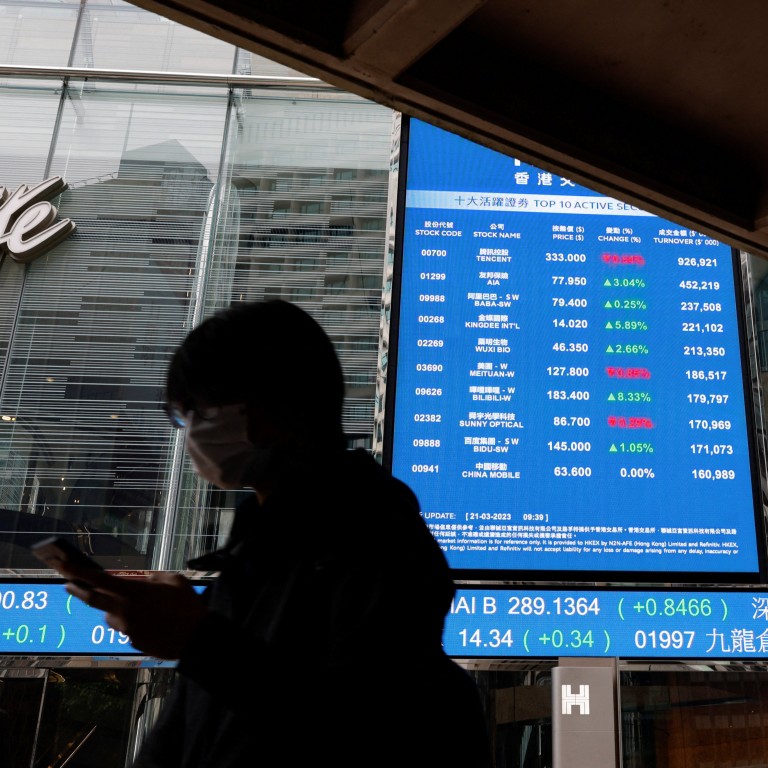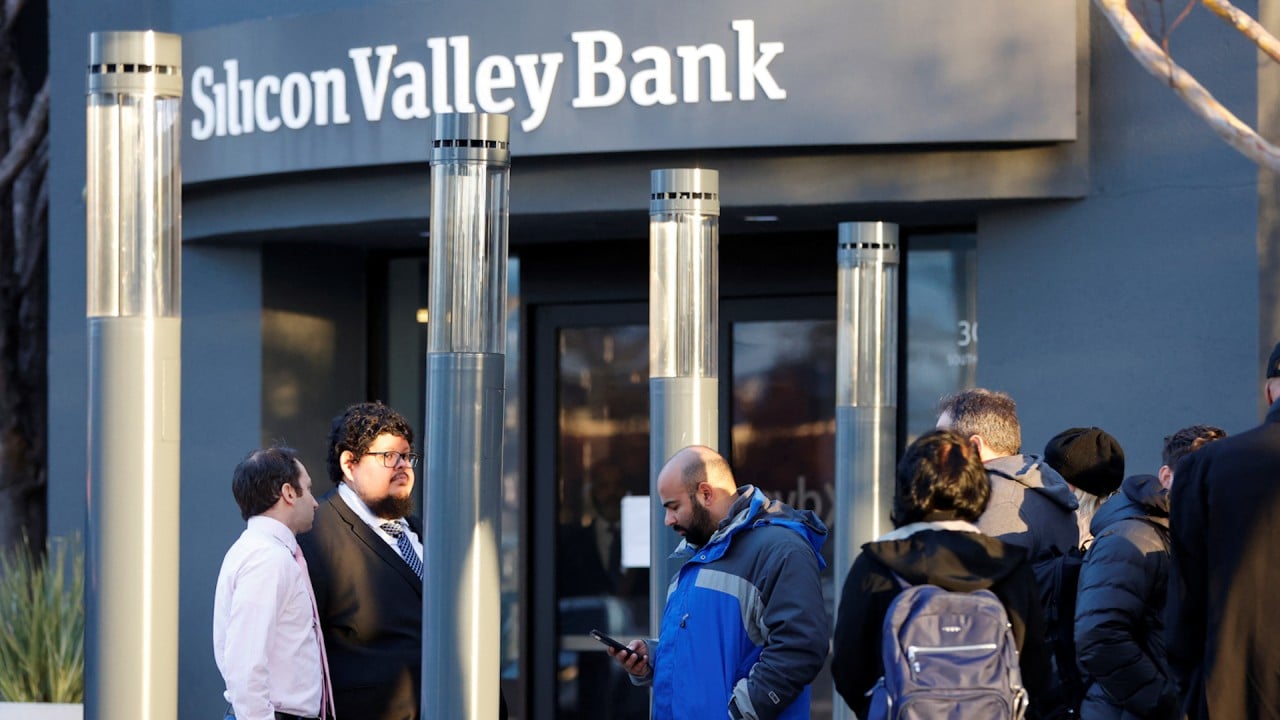
‘Fear gauge’ in Hong Kong stock market spikes as Credit Suisse, SVB drama unfolds in Europe and US
- Hang Seng Volatility Index rose to a three-month high this week as banking crisis unfolds more than 8,100-km from Hong Kong
- Relief rally in bank stocks may be short-lived, BCA Research says, as regulations are likely to be tightened in the aftermath
The Hang Seng Volatility Index, known as the fear gauge, climbed to 31.09 on Monday, the highest since December 13, according to compiler Hang Seng Indexes Company. That is higher than the average level of 25.8 this year, 29.1 in 2022 and 20.8 in 2021.
The reading implied there was a 68 per cent chance the city’s benchmark index could swing 9 per cent either way from its closing level on Monday, or to between 17,295 and 20,706, the compiler said in a note on Tuesday. The volatility was exemplified by the wild swings in HSBC, AIA Group and Alibaba Group Holding stock prices this week.
Asia-Pacific protected from Credit Suisse AT1 bond wipeout
“There are still a lot of uncertainties in restoring market confidence after the banking crisis, despite regulators worldwide rushing to the rescue,” Zhang Yusheng, a strategist at Everbright Securities in Shanghai, said in a note on Tuesday. “The panic and risk-aversion will continue driving up market volatility in the near term, and Hong Kong stocks are likely to go through multiple corrections.”
A spike in the volatility index to above 40 would be associated with only three recent significant events since the start of 2020, namely the Covid-19 outbreak, US-China geopolitical tensions and the slump in China’s property market. The index compiler did not immediately reply to an email seeking comment.
When Lehman Brothers collapsed, the Hang Seng Volatility Index surged to an all-time high of 104.29 in October 2008, based on backtesting data compiled by Bloomberg. As Hong Kong’s Securities and Futures Commission has noted, the current turmoil will not turn into a repeat of 2008.
Thanks to concerted efforts by banking regulators, the Hang Seng Volatility Index retreated on Tuesday. Regulators in the UK and Europe stepped in to reassure investors, after the Credit Suisse takeover on Sunday rendered the troubled lender’s US$17 billion of capital instruments instantly worthless.
2023 will not turn into a repeat of 2008 crisis, Hong Kong SFC says
Banks stocks are the worst performing equity sector through the turmoil. The MSCI World Banks Index lost US$122 billion over the past seven days, following the collapse of Silicon Valley Bank and the implosion at Credit Suisse. Some US$150 billion of value was erased from the Hang Seng Index and the MSCI China Index.
“Investors are watching in a wait-and-see atmosphere,” said Kenny Ng Lai-yin, a strategist at Everbright Securities International in Hong Kong. The market sentiment could be easily swayed by new twists in the banking crisis, as well as the Federal Reserve meeting outcome this week, he added.
A question facing investors is whether bank stocks are now attractive following this aggressive drawdown, according to Montreal-based BCA Research.
“The equity market is likely to remain volatile over the near term which could produce a temporary rally in bank stocks,” it said in a report on Tuesday. “In particular, a scenario in which the current turmoil does not morph into a financial crisis could lead to a relief rally in bank stocks. However, this period is likely to be short-lived.”


